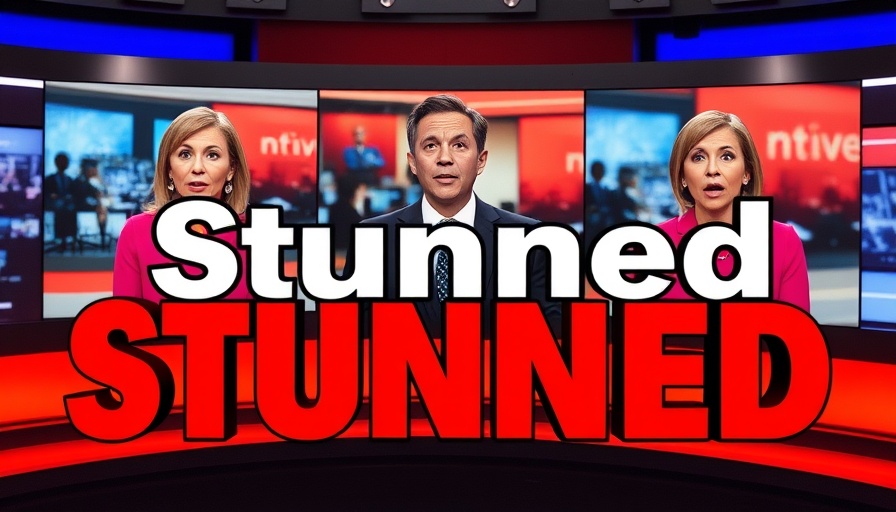
Trump's Trolling: A Move or a Message?
In a recent Oval Office meeting, President Trump displayed a unique form of diplomacy that many are calling 'trolling.' This tactic went beyond mere amusement; it confronted uncomfortable truths about societal issues in South Africa—particularly the experiences of white farmers in a country fraught with systemic challenges. When South African President Cyril Ramaphosa arrived, he likely anticipated talks focused on trade and aid. Instead, he was met with a stark presentation that highlighted the plight of white farmers who have faced violence and displacement, a narrative that remains uncomfortable for many.
The video 'Media STUNNED At Trump's Oval Office Stunt Trolling South African President To His Face' presents a unique perspective on diplomatic engagement that merits deeper analysis.
The Reactions that Followed
The fallout from Trump's actions quickly became a focal point in media coverage, which described the meeting as an 'ambush.' Many outlets voiced their disapproval, labeling Trump's tactics as a diplomatic faux pas. However, they also inadvertently shed light on the critical issues at hand, and the discomfort experienced by Ramaphosa was palpable as the President used news articles and videos to substantiate his claims. This moment serves as a reflection of the complicated discourse surrounding racial dynamics within South Africa, a reality that has significant economic and social implications.
Economic Implications for South Africa and Beyond
As discussions about international aid and support unfold, the question of how best to foster economic growth becomes paramount. Ramaphosa suggested that investing in South Africa would help address societal problems stemming from high unemployment and crime rates. Yet, Trump's firm stance against sending additional taxpayer dollars without assurance of tangible results draws attention to the delicate balance governments must strike between providing aid and ensuring it effectively promotes stability and growth.
The Broader Context: A Global Perspective
This confrontation offers an opportunity for a broader dialogue about democracy and governance across various regions. It raises critical questions about how nations address internal crises and the effects of colonial legacies that continue to influence societal structures. Perspectives from leaders like Trump's serve to reignite discussions on freedom, economic stability, and the responsibilities that come with leadership. Understanding these dynamics can promote better international relations based on mutual respect and acknowledgment of historical contexts.
Conclusion: Understanding the Underlying Message
Trump's actions in this meeting were not merely for entertainment value; they push for dialogue on vital issues that plague both the U.S. and South Africa. Recognizing the struggles of marginalized communities, regardless of race, calls for nuanced discussions around justice, aid, and economic opportunities. It's essential to revisit the narratives shaping our perceptions of international relations and the humanity behind them.
If you want to delve deeper into these pressing topics and engage with others who share your concerns, consider participating in local discussions or following thought leaders who are advocating for transparency and justice in government policies.
 Add Row
Add Row  Add
Add 




 Add Row
Add Row  Add
Add 

Write A Comment